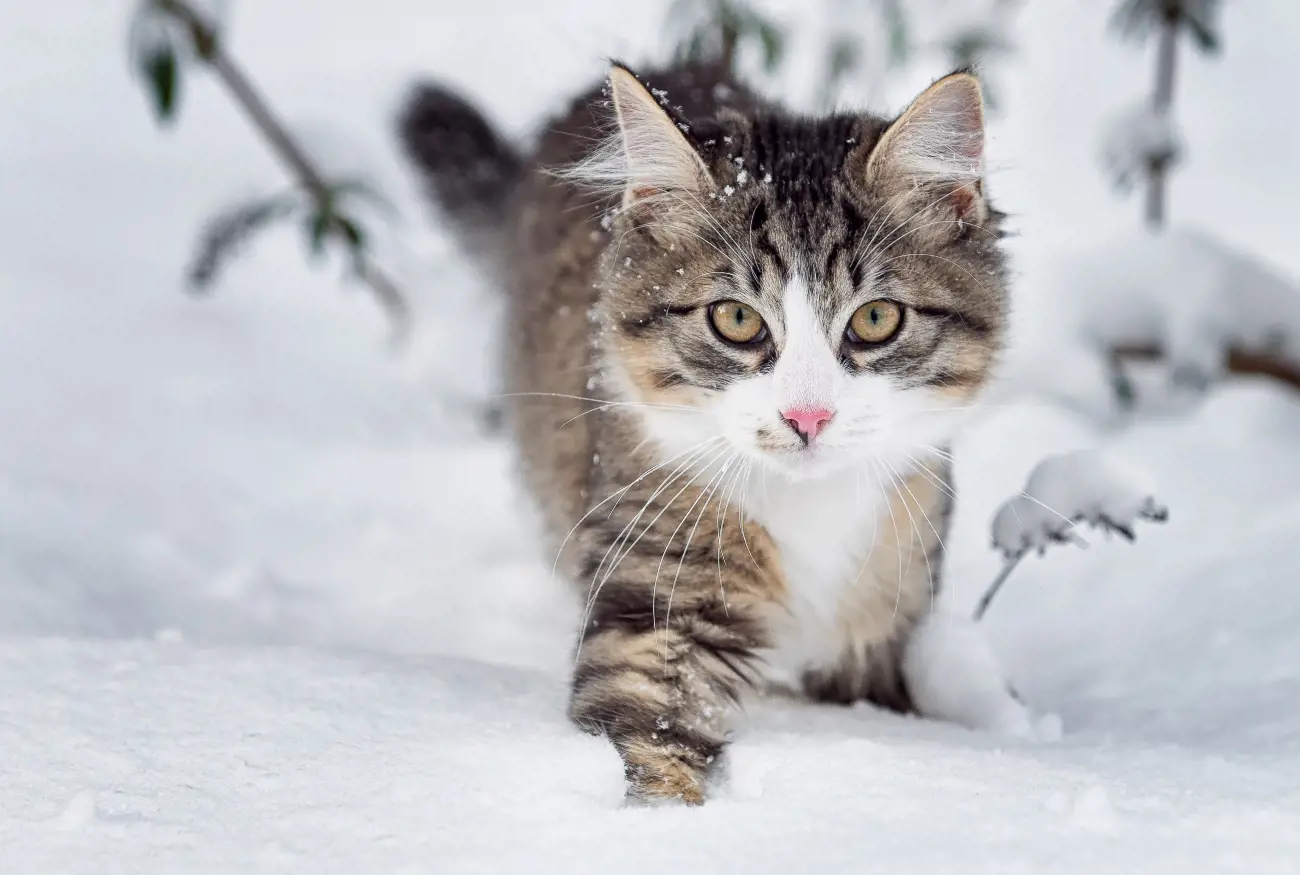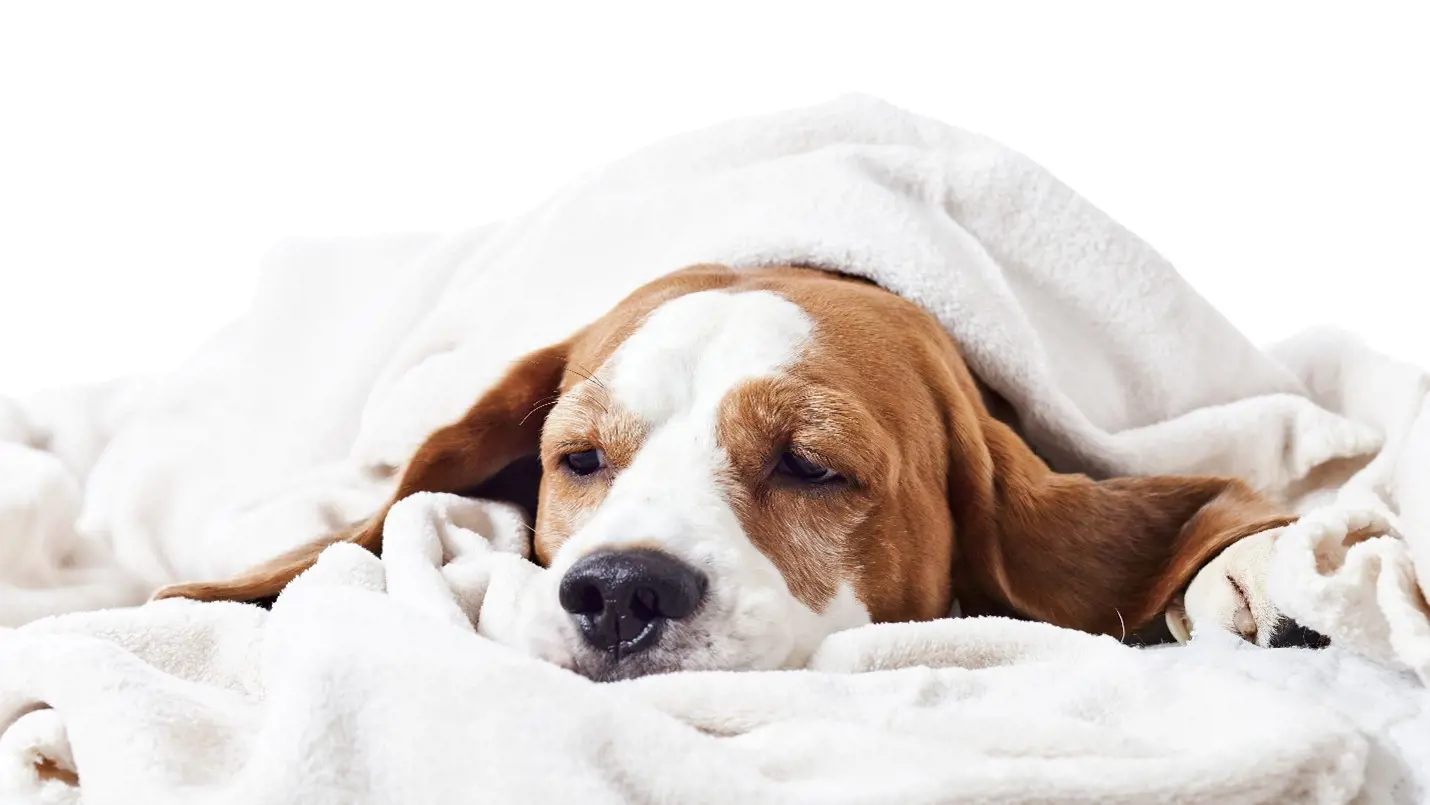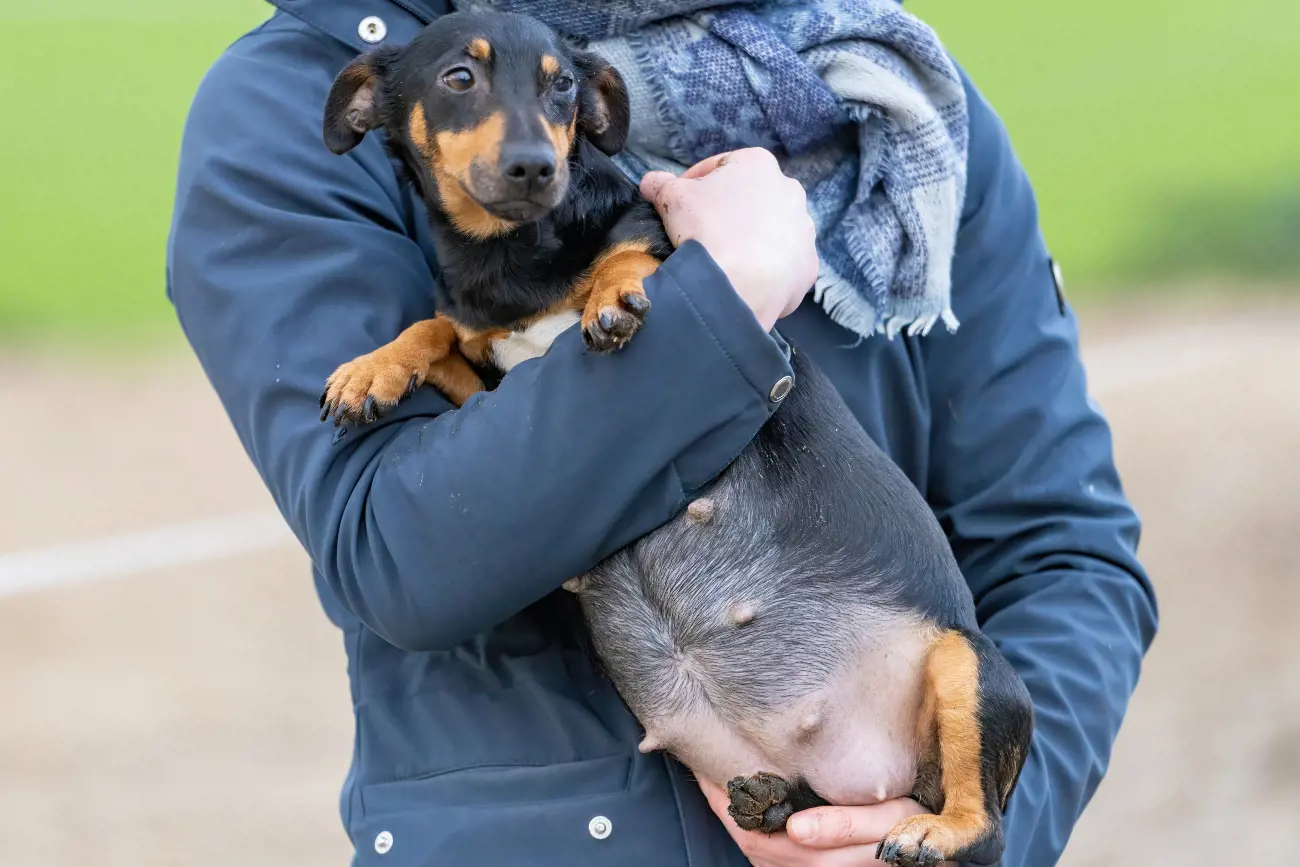5 common cat health conditions
6th February, 2020
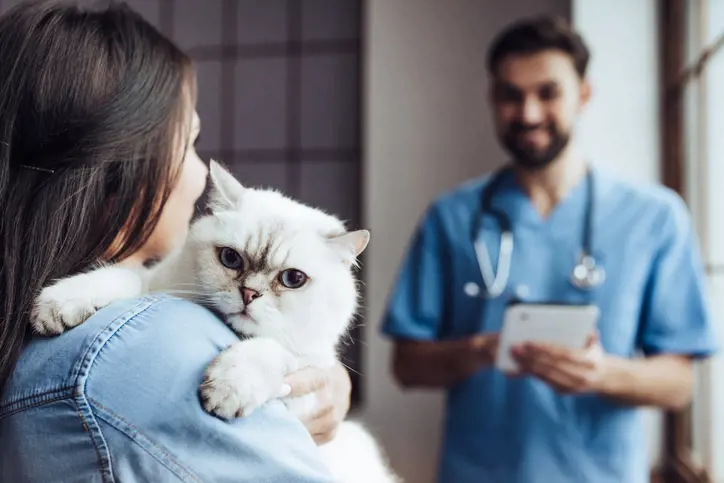
Just like humans, cats are susceptible to developing a number of health issues over their lifetime, more so as they age.
Certain illnesses can be prevented with vaccinations, while for others, you can use preventative treatments. As a cat owner, it’s vital to make sure your moggy has had all of their necessary vaccines and that they’re up to date.
Before we take a look at some common cat diseases and illnesses, is your insurance plan up for renewal soon? As animal lovers and insurance experts, Purely Pets can arrange a policy to protect your pet and your finances.
Our specialist cat insurance is available in 15 different cover levels, and can help to recoup some of the costs if your moggy was to become ill or injured and needed veterinary treatment.
Now let’s take a look at some common cat illnesses and diseases:
Dental disease – including tooth and gum disease
Tooth and gum disease are very common, writes the PDSA, and will usually be very painful for your puss. If left untreated these diseases could become more serious, potentially leading to things like heart or chronic kidney disease.
It’s down to you to regularly check the health of your cat’s gums and teeth, and their mouth should be checked over once a year by a vet.
Bad breath, loss of appetite, tartar, dribbling, a swollen face, and teeth that are wobbly, broken or missing are all signs hinting at dental disease. If you notice any of these, get your cat checked out sooner rather than later.
Treatment depends on the exact issue, but could include things like anti-inflammatory pain relief, cat mouthwash, antibiotics or surgery in more serious cases.
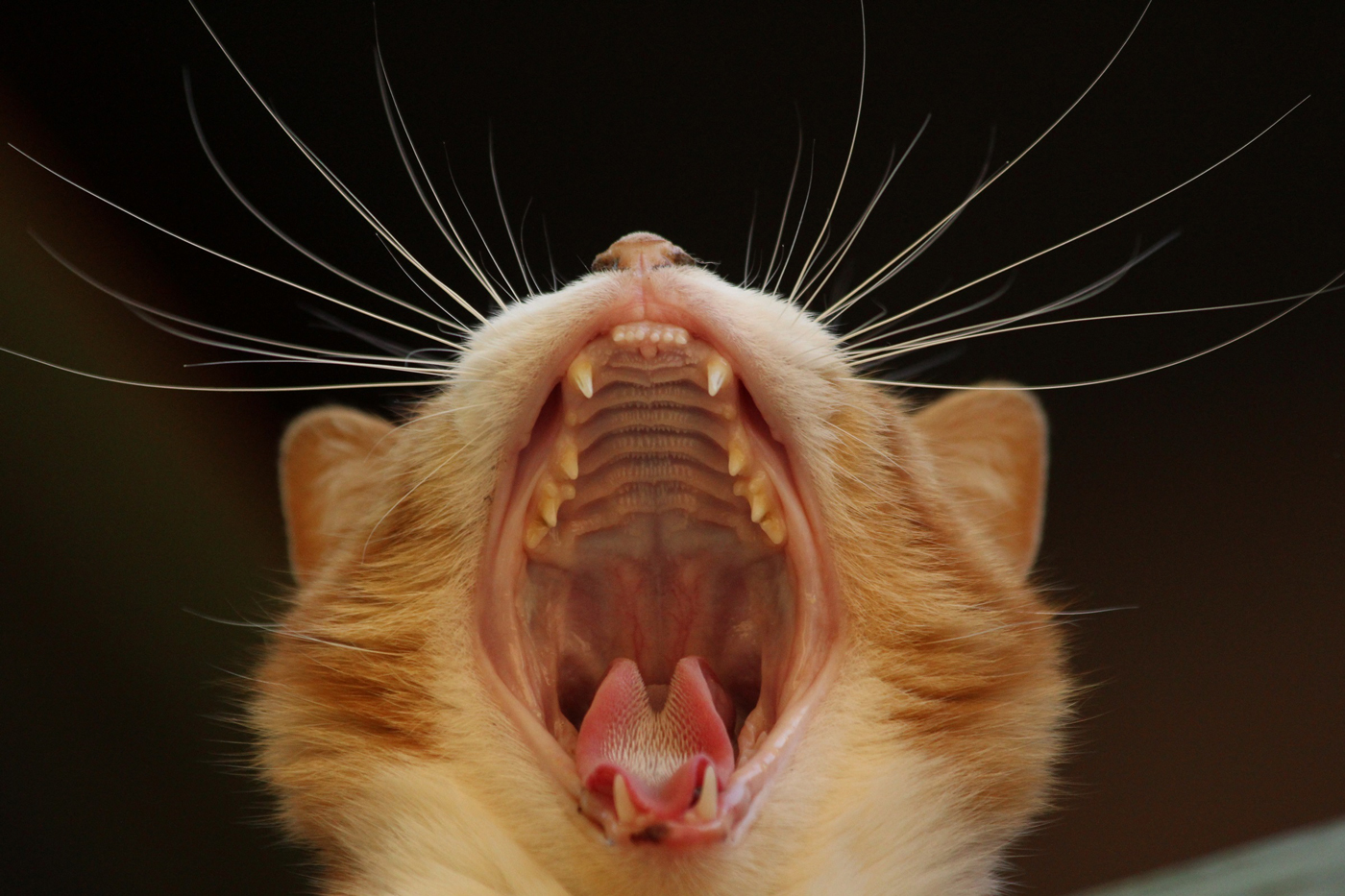
Feline Lower Urinary Tract Disease (FLUTD)
FLUTD is another common condition that affects a cat’s bladder and/or urethra. As Cats Protection explains, it includes the condition known as cystitis (inflammation of the bladder) but doesn’t typically involve the kidneys.
There’s a wide range of potential causes for FLUTD, including:
-
Urinary stones or crystals that form in the urine;
-
Spasm of the urethra muscle
-
Abnormalities in the structure of the urinary tract
-
Bladder or urethra cancer
-
Stress and behavioural issues
-
Viral and bacterial infections
If your cat has FLUTD, they may have difficulty when passing urine, or they could pass only small amounts or pee more frequently.
It’s possible that they’ll strain before or after urinating, or you may see blood in their pee. Diagnosis is likely to involve your vet asking you about your cat’s full health history, carrying out an examination and taking a urine sample.
Again, treatment depends on the underlying cause of the FLUTD, but may involve antibiotics (usually the case with bacterial infections) or a prescribed diet (for urinary crystals or stones).
A urethral obstruction will be dealt with as an emergency because it can be very painful for cats and potentially fatal.
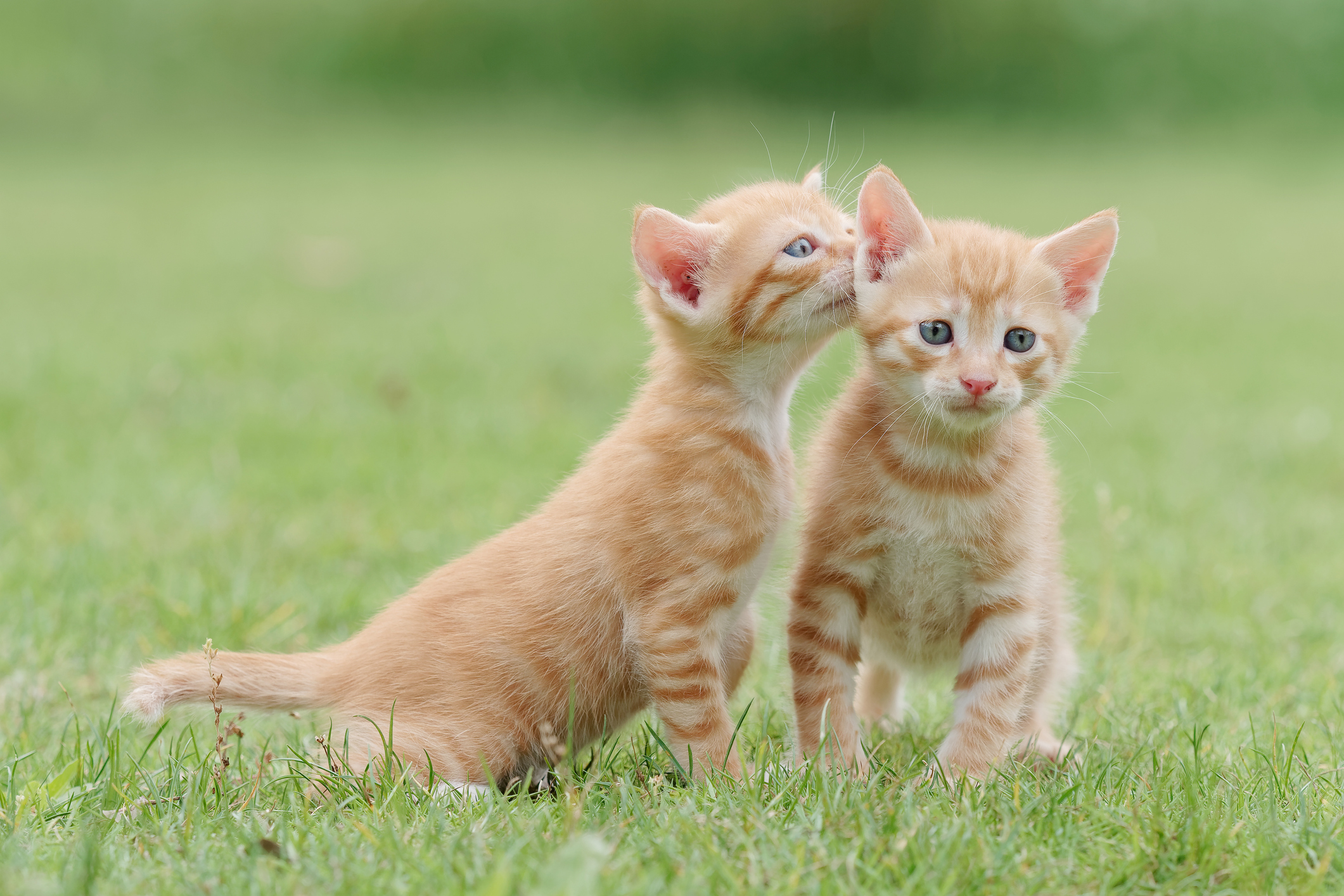
Parasitic infections – including roundworm
Roundworms are the most common type of parasitic worm found inside cats, and it’s very likely your puss will get them at some point during their lives.
There are a number of ways they can contract roundworms, for instance by eating wild animals that carry them, by eating poop, or from a contaminated environment.
Mature roundworms live in the intestines and cats might not show any signs of having them unless they have a major problem. In which case, your cat may lose weight, their stomach may look swollen and they might start vomiting.
Worm treatment is a simple solution, and your vet can recommend the right product based on your cat’s age and health requirements.
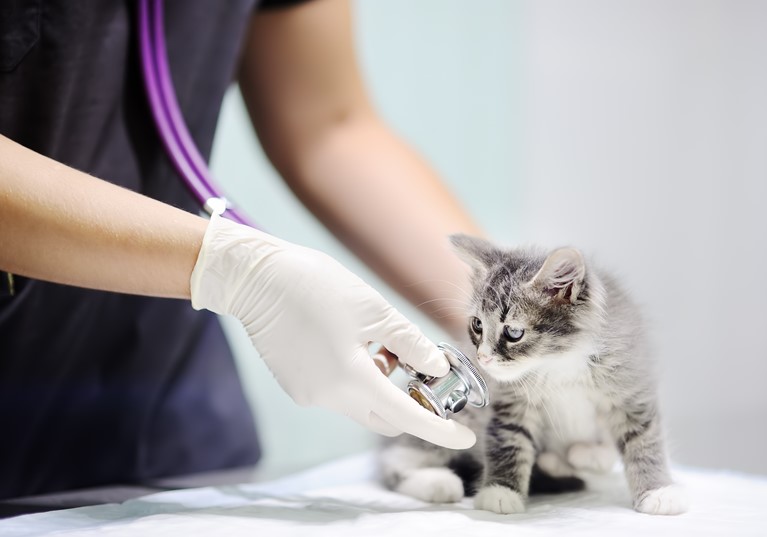
Feline Leukaemia Virus (FeLV)
FeLV is a common cause of death among domestic cats. As Blue Cross writes, it’s an incurable viral infection that eventually leads to fatal illness in cats; estimates show that around 1-2% of cats in Britain are infected, and they typically die within four years of detection.
FeLV has a wide range of symptoms, from weight loss and fever to lethargy and recurrent diarrhoea. Because the virus attacks the immune system, it can also lead to cancer – around a fifth of cats with FeLV will die from cancer.
If your cat goes outdoors or lives with other cats who venture outside, Blue Cross recommends vaccinating them against FeLV.
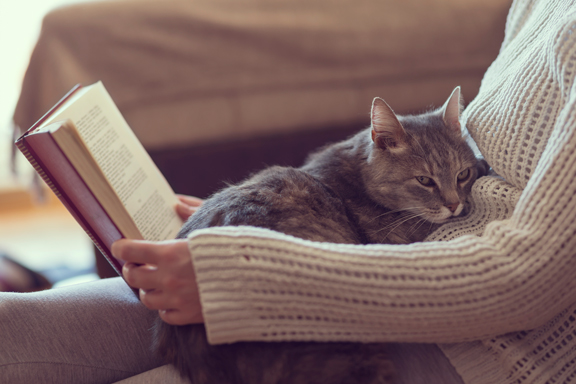
Skin problems
Skin problems are pretty common among cats. As Animal Trust notes, they usually take the form of parasite allergies, bacterial infections and hormone imbalances. These include:
An inflammatory disease caused by different types of mites, which live and burrow into the skin and fur, causing swelling, excessive scratching and hair loss.
Ear mites
These are common among kittens who could have picked them up from their mums. You’ll notice moggies scratching their ears and shaking their heads in order to alleviate the symptoms.
Stress-induced alopecia
This is usually caused by changes in a cat’s environment and can lead to excessive grooming and a low mood.
Feline acne. This is where blackheads appear on your cat’s chin or underneath their lips. The chin will become swollen and irritated, and your cat will want to scratch it non-stop.
See a vet if your cat seems agitated and/or if they have bald, flaky or red patches on their bodies. Vets might do a skin scraping to get to the root cause, and treatment will depend on the exact condition.
Tips to help keep your kitty healthy
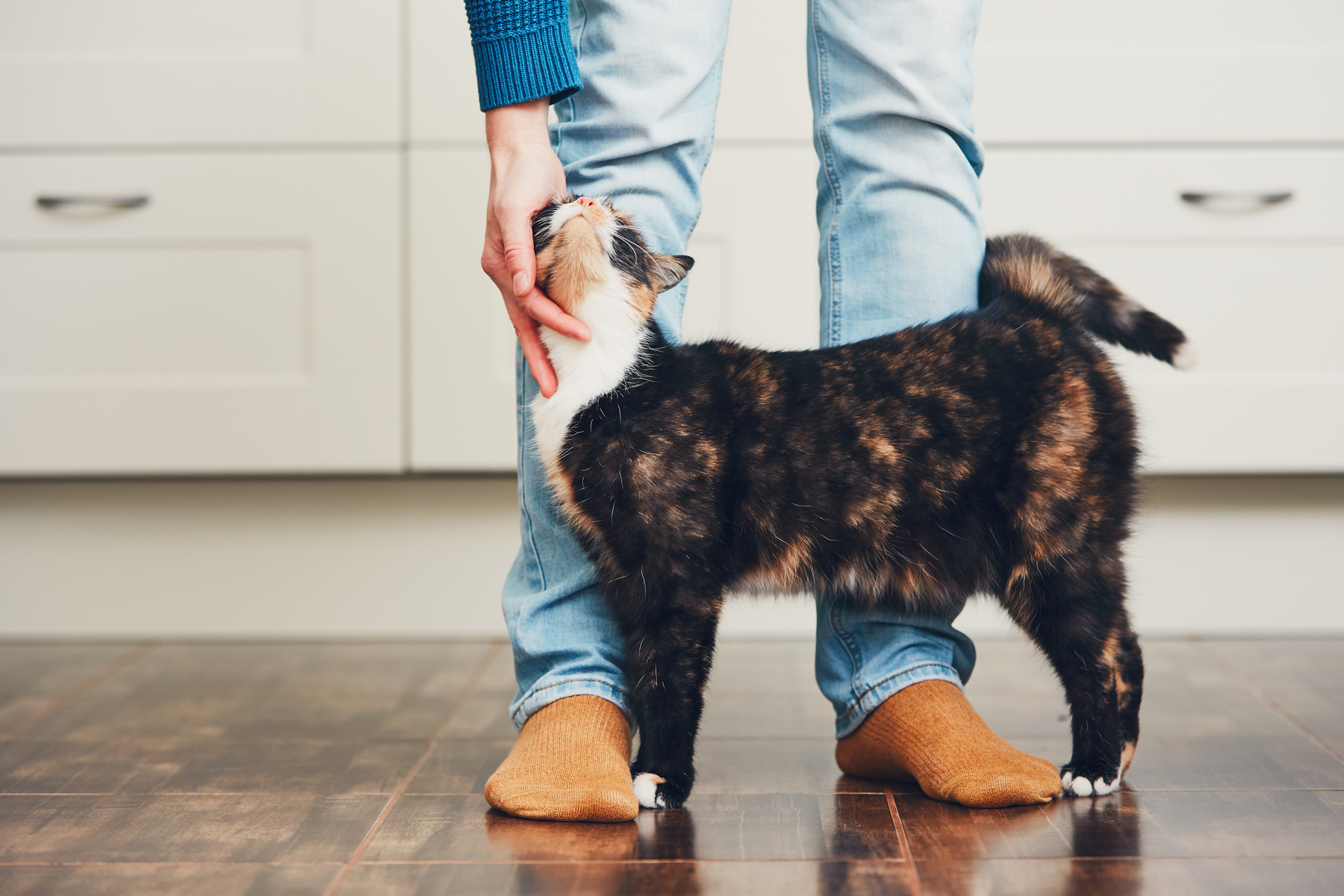
No one wants to see their kitty unwell. While you can’t stop them from becoming ill altogether, the good news is that there are things you can do to cut the risk of them developing something nasty – in turn helping them to stay healthy and happy.
Here are five top tips, courtesy of PetMD:
Schedule in regular check-ups
Getting your puss booked in for a yearly check-up at the vets is one of the best ways to help fend off any nasty illnesses. These assessments are an opportunity for vets to spot any problems and treat them early on, before they turn into something more serious.
You need to bear in mind that cats age much quicker than us. So, missing a check-up one year is similar to you not taking a trip to the doctor for more than five years!
Regular check-ups become even more important as your cat ages – you should consider a biannual trip to the vets when your moggy reaches old age.
Feed them good food
Nutrition is fundamental to your kitty’s health and wellbeing – so, when it comes to their food, don’t settle for second best!
Because there’s so many cat food products on the market, it could be worth speaking to your vet about the best food for your cat’s age and health needs.
The best products on the market tend to be specially formulated with fatty acids and antioxidants in order to support your cat’s immune system.
Use treats wisely
Treats are handy to have when training your feline – and you may simply give them a treat for being a good boy or girl! But you should only give your puss healthy treats and make sure they’re used in moderation compared to your kitty’s diet.
So says Dr T.J. Dunn, Jr.: “Treats should not make up more than 10% of your cat’s daily diet because they are not balanced.” Too many treats could mean that your moggy gets too much of one thing (usually calories) and not enough essential minerals and vitamins.

Keep them busy with games and exercise
Schedule in time to play some fun, interactive games with your cat – ideally twice a day, for around half an hour each time.
This will keep them active, lowering the risk of them becoming overweight, with the added benefits of reducing stress and keeping them mentally stimulated.
There are so many cat toys available, so try a few and see which your puss likes best. They may like something simple like a mouse on a string, or perhaps something that requires a little more brain power, such as a cat puzzle.
Create a stress-free environment
Cats are susceptible to getting stressed, just like we are – and their environment plays a big part in this.
Stress can impact your cat’s health, potentially causing illnesses such as cystitis or what’s known as ‘inappropriate elimination,’ which is when they wee or poo in places other than their litter box.
Simple things like regularly cleaning the litter box, providing plenty of perches and scratching posts, and making sure they have enough food and water, can work wonders in preventing your cat from getting stressed and suffering any side effects.
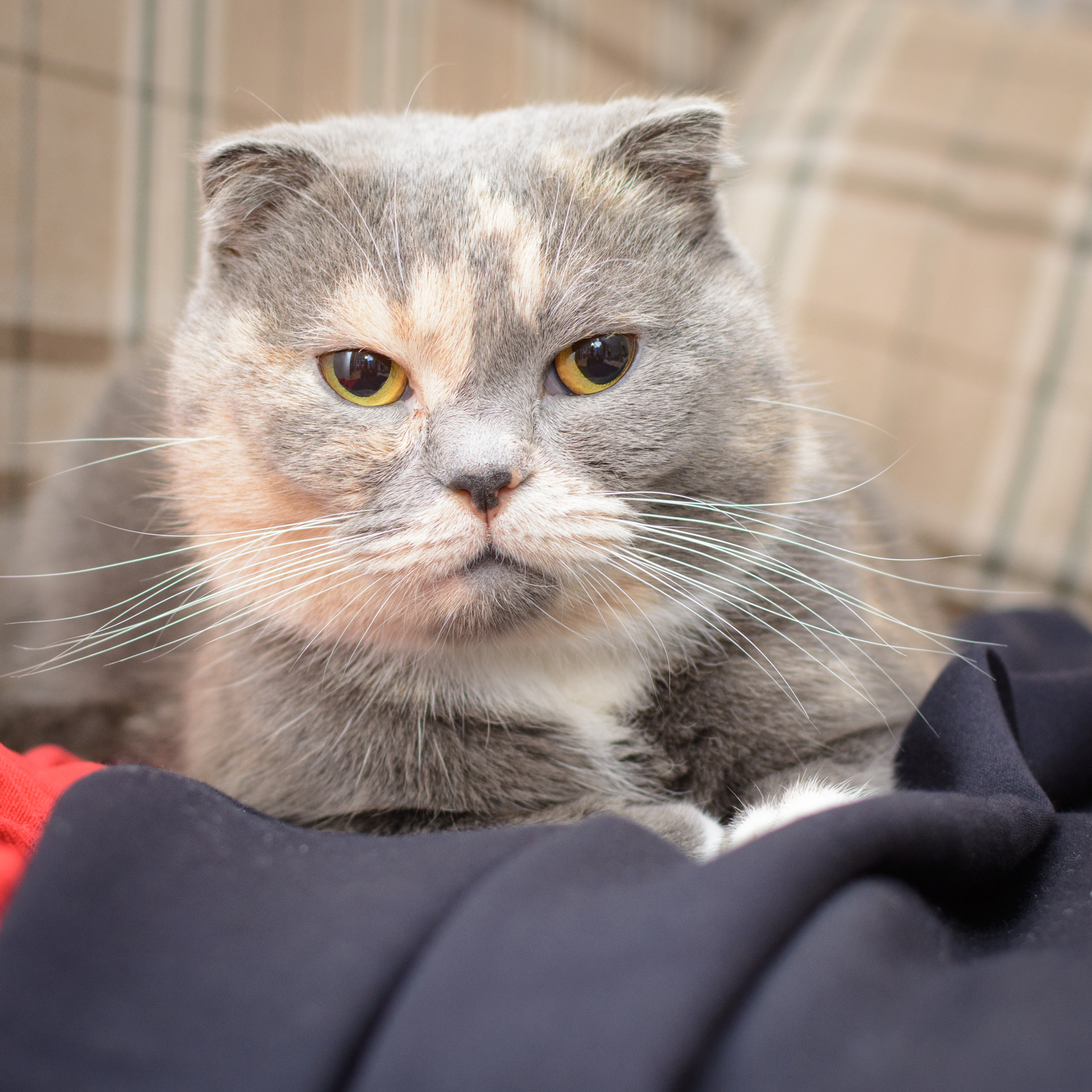
General signs your cat is unwell
It can be hard to tell whether or not your puss is poorly. That’s because moggies are highly skilled at covering up illness – in the wild, this skill would protect them from predators or other animals that may prove a threat.
But, writes The Spruce Pets, there’s another reason why cats are less likely to show that they’re in pain or unwell: because they don’t have an emotional connection with discomfort like humans do.
They’re much more likely to accept the pain or discomfort and get on with it. This means that you might only be able to tell your kitty is poorly when they’re really poorly.
Here are some tell-tale signs that it might be time to visit the vet:
-
Very rare vomiting or coughing up the odd hairball is fine, but if your cat is regularly being sick you should see the vet.
-
This could be a result of dietary problems, parasites in the intestines, or a range of other issues. If left untreated your cat could become severely dehydrated or their intestines could inflame further.
-
Lack of appetite. Skipping the occasional meal shouldn’t be a cause for concern, however if they stop eating altogether or can only manage tiny amounts of food, you should see your vet. Not eating for several days in a row could lead to a serious health problem known as fatty liver or hepatic lipidosis.
-
Increased appetite. If your moggy is non-stop munching (more so than usual) this could be down to hypothyroidism, or underactive thyroid. Your vet will need to carry out tests to see if this is the cause. Even if it’s not, overeating shouldn’t be ignored because it can lead to obesity.
-
Weight changes. This is always a concern, whether your cat has lost or gained a lot of weight in a short space of time. Weight loss is more of a concern in the short term, while weight gain tends to be more harmful over time.
Other signs include: lethargy; increased thirst; changes in urination; changes in breathing; discharge from their eyes, nose or ears; hair loss; or personality changes.
If you notice any of these in your cat then it’s always worth seeing the vets. Even if they don’t have a health condition, at the very least it would have put your mind at ease.
Cover your cat with Purely Pets
As we’ve mentioned, while these steps will help to keep your cat healthy and happy, there’s still a chance they will become ill and need to see a vet.
Here at Purely Pets, we want to make sure that if your kitty was to become ill or injured, you would be able to provide them with the care they need to make a speedy recovery.
We’ve created 15 different cover levels, giving you the freedom to choose the right level for you and your beloved moggy.
Choose Purely Pets and you’ll also get access to a 24 Hour Vet Helpline and a Manage My Policy portal, so that you can manage your policy at a time that suits you.
Some of the benefits and features of our cat insurance policies include:
-
Vet fees from £1,000 to £15,000
-
Excess starting from as little as £60
-
Complementary treatment
-
Special diets covered
-
Death from illness or accident
-
Boarding fees
-
Holiday cancellation
-
Loss by theft/straying
-
Advertising and reward
Get your kitty covered with cat insurance from Purely Pets. Get a free, no-obligation quote today!
Helpful Pages
Recent Posts
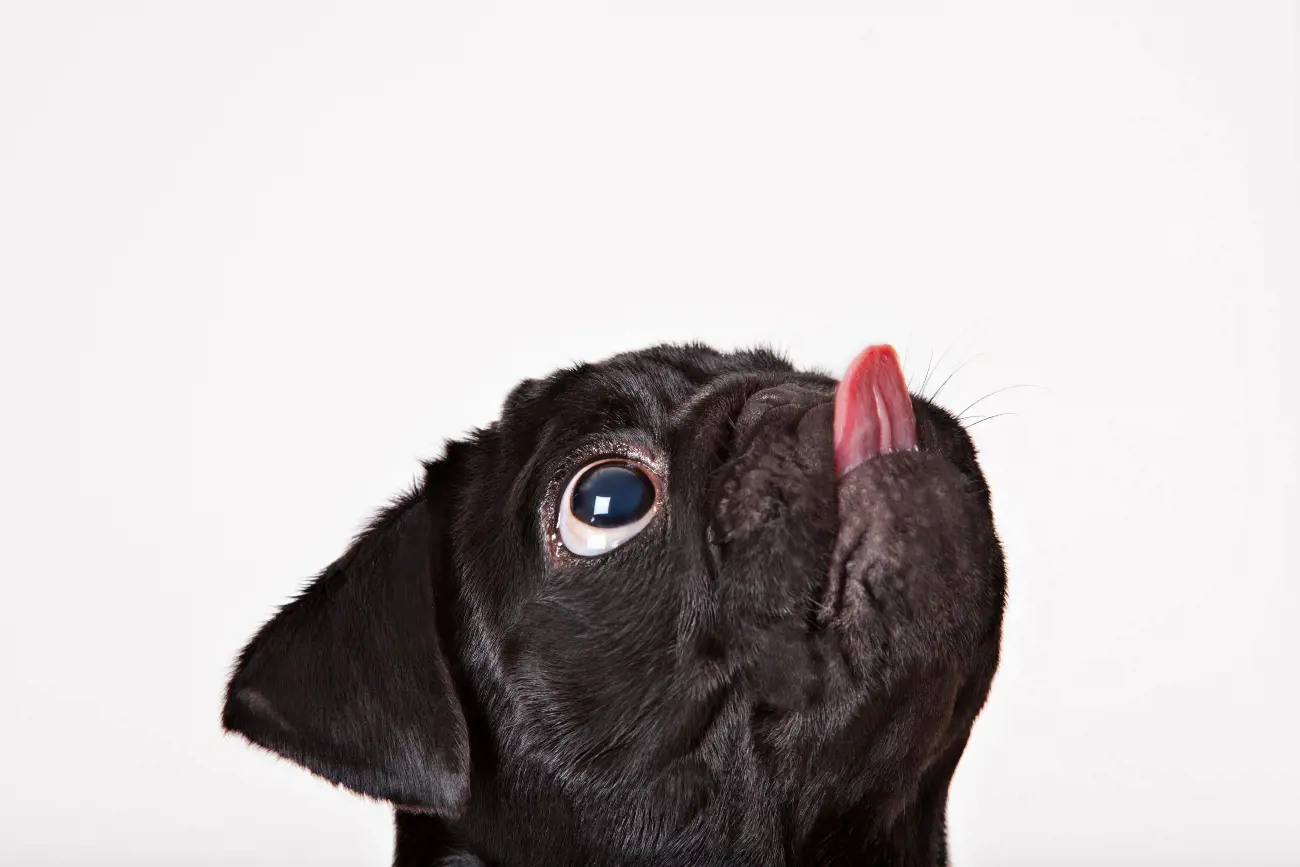
Why do Pugs lick the air?
02/10/24Pet Insurance Quote
- 98% claims paid *
- Claims paid directly to vets
- 24/7 vet video consultations
- Interest free monthly payments
